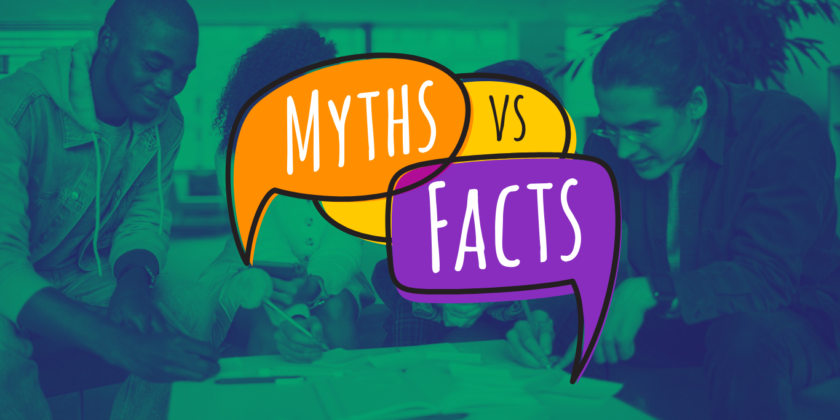1. Apprenticeship is paid work while you can learn new skills
Too good to be true? But it is!
There are skills that you can’t learn during the academic training. From the hands-on experience, you can benefit from working with other senior employees and experienced colleagues from different backgrounds to upskill your team-working, time-management, problem-solving and communication skills. You can further expand your skillset as well as getting a feel of a professional working environment and understand where your best fit is. Check out other Apprenticeship Network blogs for more experience sharing stories. What’s even better is the experiences you gain will help boost your CV and improve your employability and broaden your career path.
2. Apprenticeship is the same as an internship
Myth! An apprenticeship is a real job that involves a legal contract of employment, salaries and you’re entitled to paid annual leave.
What is the difference between apprenticeship and internship, you ask?While an internship is usually a short work experience between a week and 12 months where you practise your existing skills and gain experience; on the other hand, an apprentice is a long-term qualification where you are taught to develop professional skills and knowledge to ensure you are cultivating your personal development while being a valuable asset to the company in the long run.
3. Apprenticeship is only for young people
Myth! As long as you are over the age 16 by the end of the summer holidays, you are eligible to join apprenticeships in the UK. And there is no upper age limit!
According to statistics from gov.uk, 16 and 24 years old account for 77% of the total number of apprentices in academic year 2021/22, and the remaining 23% is 25 years old or over*.
So it doesn’t matter if you’re a graduate, school leaver, career changer, or just feel like upgrading your skillsets, you can all apply to be an apprentice. You will meet people from all backgrounds here at The Apprenticeship Network.
4. Apprenticeship is only for skilled and manual jobs
Myth! A wide range of apprenticeships are offered by different varieties of industries including apprenticeship jobs in engineer, digital marketing, project management, IT, law, fashion, architecture, media, publishing, journalism, finance and more. Furthermore, it’s even available up to degree level and beyond. Have a look at our Apprenticeship Network blog if you’re interested in the digital marketing apprenticeship. You can even find an apprenticeship.
Health, Public Services and Care accounted for 25%.
Business, Administration and Law accounted for 20%
Engineering and Manufacturing Technologies accounted for 19%.*
Source: https://explore-education-statistics.service.gov.uk/find-statistics/apprenticeships-and-traineeships

5. Apprenticeship is free
Fact! You can get help from the apprenticeship government fund. Depends on whether the company gets the apprenticeship levy and how much the levy is, the apprenticeship can be completely free but at least it won’t be a concern for you!
6. You can’t work remotely for apprenticeship
Myth! Speaking for most of us, we have all gotten used to working from home or a hybrid working lifestyle. Most of the apprenticeship programme offers remote teaching and tutoring sessions. As long as you have an agreement with your employee on your working hours and locations, you can even work at the beach if you want! (Not that it’s the best place to work to be honest. Imagine the sand, the wind, sun glare on your screen…)
7. You need to apply for a new job to get the apprenticeship
Myth! Apprentices can be new or current employees.
If you’re considering changing your career path within the company, you can become an apprentice at your current job to grow your skillsets.
8. You do not need to have done A levels to be on the apprenticeship programme
Fact! Different levels of apprenticeship programmes require certain eligibilities. If you don’t hold the qualifications required, you can take the equivalent exam to gain the certificates for the requirements after you join the programme. Just make sure you get all the certificates needed to complete the apprenticeship before the deadline!


